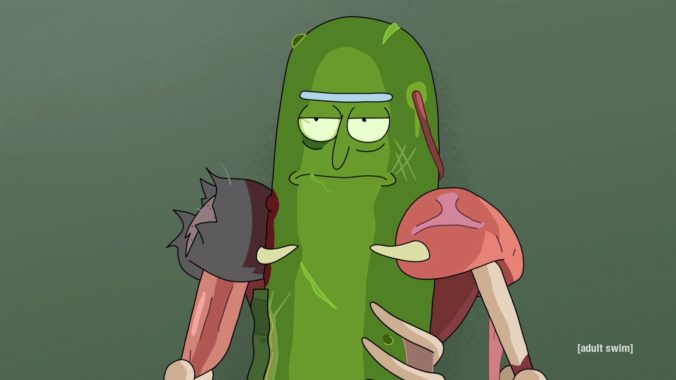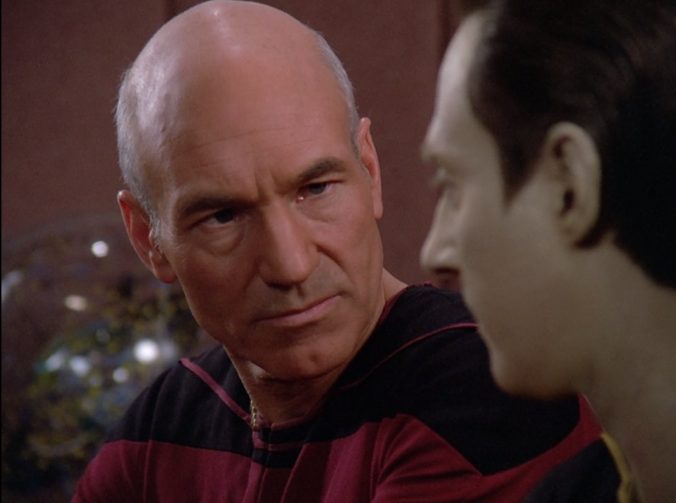You may have noticed there was no podcast this week. That’s because I was on vacation. I promise we’ll make up for it in the coming weeks, but I wanted to throw out a little bonus blog post to fill the space. Here are some thoughts on “Game of Thrones” as it nears the end of its shortened seventh season.
Everybody keeps telling us that Daenerys is not like her father. That she’s not evil. That maybe she’s the “princess that was promised.”
Her supporters love her. She could stand in the middle of Fifth Avenue and burn somebody to death and not lose any of her loyal followers.
But guys, listen. Last week, Daenerys spent the better part of the episode riding her dragon around and burning men alive. This week, she burned some more just for good measure. This may not be relevant in Westeros, but I don’t think Daenerys is a good person.
She’ll tell you she just wants to destroy the wheel and not the people in her way. But it’s hard to take that too seriously when she’s telling people to bend the knee or die in the same breath. She tells Tyrion, “They made their choice.” But there were many other men than the two Tarlys she burned alive that also chose not to kneel. She didn’t murder all of them. She simply waited for them to become terrified after she cremated a couple of their friends.* Even before that, they didn’t really have much of a choice. At all points, the choice was “die” or “come with me if you want to not die.” The only thing that changed was that the soldiers knew they would die via dragon (which, c’mon, they had to have a pretty good idea was going to happen anyway).
*Side note: Daenerys really did seem to pick out Tarly Senior at random from the group of still-standing soldiers, but I’m sure there’s some reason why she somehow recognized he was the leader or something.
The “choice” she gave them reminded me of Cersei’s line from later in the episode.
“We fight and die, or we submit and die. I know my choice.” – Cersei
When it came down to it, the soldiers had two terrible options and choosing to not die is not the same as choosing to follow someone because they freed you from slavery. As Dany gets closer to power, she is becoming corruptible.
I’m concerned.
Plus, when it comes to the way the entire story is developing, a Dany heel turn feels inevitable. The story was about the Starks at the beginning, and it seems to be headed back that way now. (Screw you, book readers. Jon might be a Targaryen, but he was raised a Stark.) Jon is the de facto hero of the show, and Bran, Sansa and Arya are a couple speed bumps away from forming a hell of a team. Also, Jon is Ice and Dany is Fire, and Ice is good and Fire is bad. My bold prediction is that the Starks end up on top, and everyone lives happily ever after.
Right? What could possibly go wrong?
Other Thoughts
- Jk, death is coming for us all, and with winter finally here, s*** is about to go down. This “Actually Interesting Suicide Squad” should be fun to watch.
- I’ve always been a big Littlefinger fan, but I’m starting to think he’s just delaying the inevitable. Big player will die a big death, though, I say.
- Cersei looks back in the game suddenly. Of course she’d use the White Walkers as a distraction to further her agenda. Tywin’s daughter ain’t dead yet. And there’s another incest baby on the way! (My prediction of her being dead by the end of this shortened season seems increasingly unlikely.)
- Speaking of incest, can we not pair up Dany and Jon? I’m honestly not even saying that for incest-related reasons. Emilia Clarke and Kit Harington just don’t have any chemistry. Don’t do this to us.
- A lot of comebacks this week to the game board with Jorah and Gendry and the Hound and the Brotherhood Without Banners and everything. I gotta be honest, I don’t really remember who’s who or who’s met before or why everyone doesn’t like each other. Who cares?
- Peter Dinklage’s work in that scene with Jaime was just next-level. The best performance on a show with a lot of good ones.
- “Here we all are, at the edge of the world.”
We’re all on the same side.
Two episodes left!




